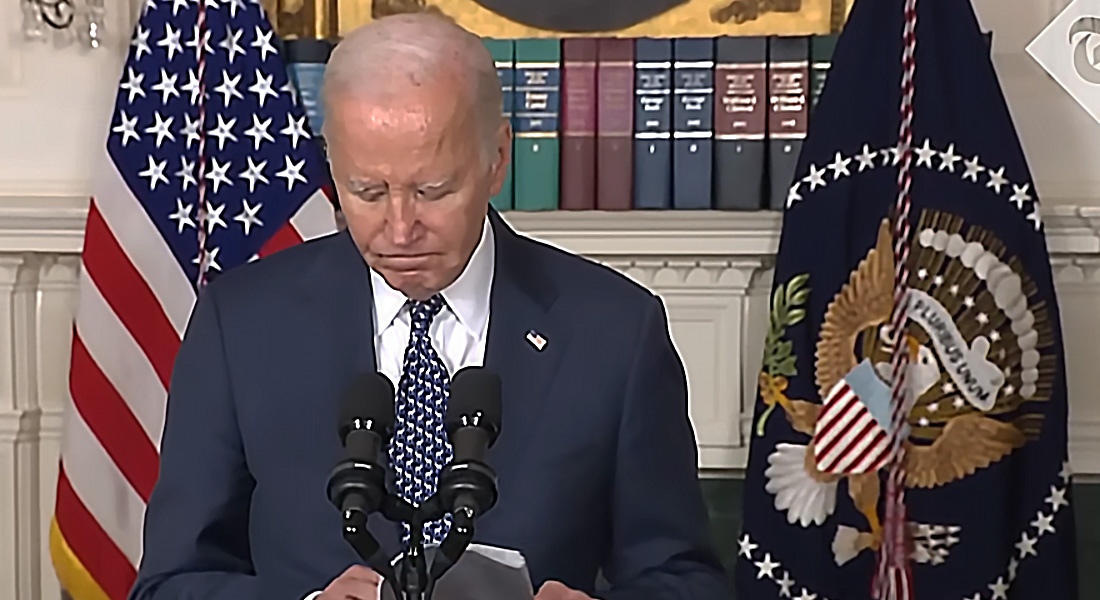
Joe Biden was deemed mentally unfit for trial so, what does that mean for his capability to be president? These are the questions that have been raised and debated by numerous critics and supporters alike. With the responsibility of leading a country as powerful as the United States, mental fitness is a topic that cannot be taken lightly.
Biden's mental health has been a topic of concern for many since his presidential campaign began. Critics point to his verbal gaffes, forgetfulness, and occasional confusion during speeches as evidence of cognitive decline. They argue that these factors make him unfit to stand trial and unfit to hold the highest office in the nation.
During the campaign, there were instances where Biden stumbled over his words or appeared to forget key details. These incidents were widely shared and discussed on social media, fueling the narrative that Biden's mental health was deteriorating. Supporters of Biden, however, argue that these incidents are simply a result of his age and the pressure of the campaign, and do not necessarily indicate cognitive decline.
While critics may point to Biden's verbal gaffes as evidence of mental decline, there is also other evidence that raises concerns about his mental fitness. For example, there have been instances where Biden has struggled to remember names or details during interviews and public appearances. These memory lapses have been widely reported and have contributed to the perception that Biden's mental health may be deteriorating.
In addition to memory issues, some have also raised concerns about Biden's ability to articulate his thoughts clearly and coherently. There have been instances where he has appeared confused or struggled to express himself effectively, leading to speculation about his mental capacity. While these incidents may be isolated, they have nevertheless raised questions about his overall mental fitness.
The mental fitness of a president is a crucial factor that can significantly impact their ability to govern effectively. The decisions and actions of a president have far-reaching consequences, and they must be in a state of sound mental health to make informed and rational choices.
A mentally unfit president may struggle to make coherent decisions, communicate effectively with stakeholders, and manage the complexities of the office. They may be prone to impulsive or irrational behavior, which can have severe consequences for the nation and its citizens. The mental fitness of a president is not just a personal matter; it's a matter of national importance.
The media plays a vital role in addressing mental fitness concerns when it comes to presidential candidates. It's the responsibility of the media to report accurately and objectively on the mental health of candidates, providing the public with the necessary information to make informed decisions.
However, the media must also be cautious not to perpetuate unfounded rumors or engage in sensationalism. Reporting on mental health should be done with sensitivity and respect, focusing on factual information rather than speculation or personal attacks. The media's role is to inform, not to diagnose or stigmatize individuals based on mental health concerns. Which the mainstream media outlets generally do the opposite of.
While there are concerns about Biden's mental fitness, there are also counterarguments and defenses put forth by his supporters. They argue that Biden's age and experience bring a sense of wisdom and stability to the presidency, outweighing any perceived mental decline. They point to his long career in politics and his ability to navigate complex issues as evidence of his competence.
Furthermore, supporters argue that the occasional verbal gaffes and forgetfulness are common among individuals of Biden's age and should not be interpreted as signs of cognitive decline. They suggest that focusing on these minor lapses detracts from the more significant accomplishments and qualifications that Biden brings to the table.
The discussion surrounding Biden's mental fitness brings to light the importance of mental health discussions in politics. Mental health is a critical aspect of overall well-being, and it impacts individuals in all areas of their lives, including their ability to fulfill demanding roles such as the presidency.
The potential consequences of having a mentally unfit president are significant and far-reaching. A mentally unfit president may make impulsive or irrational decisions that can have severe consequences for the nation and its citizens. They may struggle to effectively communicate with world leaders, leading to strained relationships and diplomatic challenges. Additionally, a mentally unfit president may be unable to handle the pressures and demands of the office, leading to increased stress and a decline in overall governance.
The consequences of a mentally unfit president extend beyond the immediate term. They can have long-lasting effects on the nation's reputation and standing in the global community. A president who is unable to fulfill their duties effectively may erode public trust in the government and undermine the stability of the nation.








